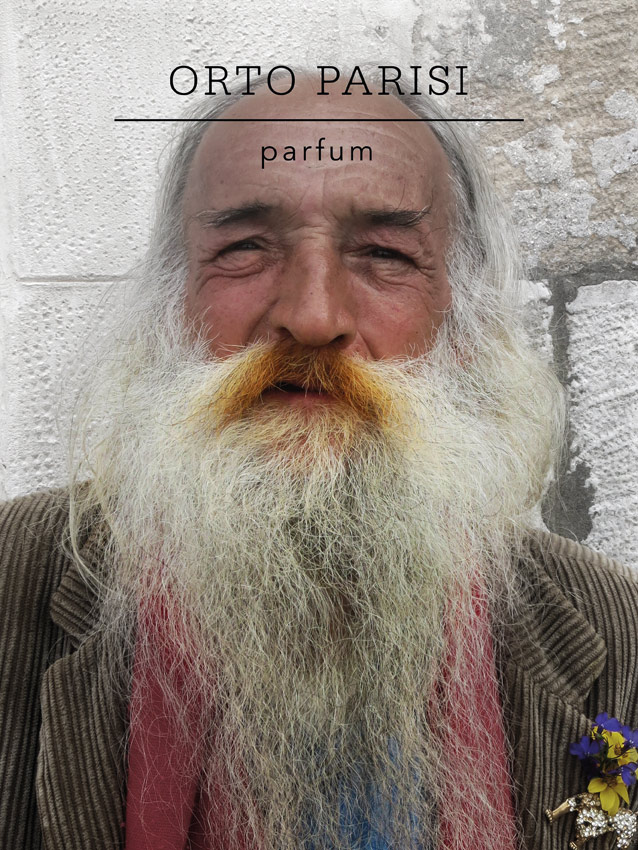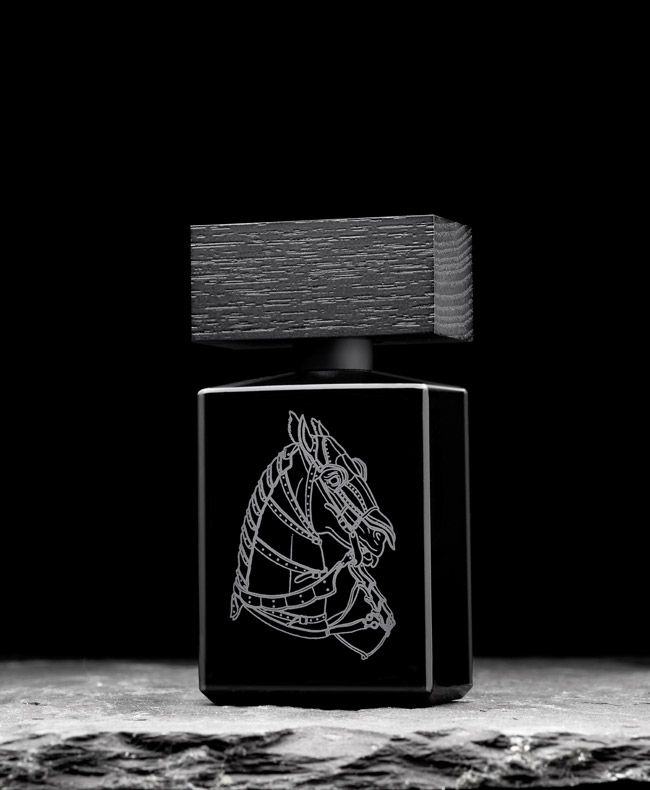Julia Ahtijainen is a freelance consultant and communications project manager who specializes in concept analysis and content creation. Some of her most notable clients include cutting-edge niche fragrance brands like Nasomatto, Orto Parisi, and BeauFort London. Julia’s dream assignment is to direct a project that involves all the senses, combining the fields of scent creation, design, music, art, and fashion. Below, she reconnects with her background in semiotics to take a look at the weirdness of working in communications and of speaking about something as ephemeral and esoteric as fragrance.
Communications is a weird field.
A friend of mine, who hopes that one day I change my field and stop wasting my talent and time, recently wrote, “I was thinking the other day that I really don’t like any perfume per se. All of them are just too damn strong. If they are supposed to enhance the person, they should never overpower them, but it seems that they always do. It’s like putting lipstick on a pig, but it’s still a pig.”
My friend articulated pretty clearly how I sometimes feel about my job. Communications in general is a weird field. It’s something in between politics (one has to always be polite and politically correct), babysitting (taking care of the journalists and explaining multiple times the importance of social media and press gifts to the owners or creators of brands), and style (you kind of need to look, sound, and be an extension of a brand so you don’t lose loyalty points on both sides of the business).
And then, how do you measure the results of these three roles? The blood, sweat, and tears one invests in a couple of nice, sometimes forced, words and meetings? The time that’s been wasted or invested?
 Communications project manager and brand expert Julia Ahtijainen. Photo: Christina Slaton.
Communications project manager and brand expert Julia Ahtijainen. Photo: Christina Slaton.
I’m a pretty honest and direct lady.
Getting back to the expression my friend used, I’m not a pig and don’t really like lipstick. Unfortunately for my field, I’m a pretty honest and direct lady. And I don’t like pigs or eating pork, unless it’s the obligatory taste of prosciutto crudo during a celebratory night out with my Italian friends.
“Pig” is a word that smells. It’s a word that has multiple meanings, is heavy in many cultures, and even banned within some religions. In his book L’Onesto Porco, which translates to “honest pig,” Italian historian Roberto Finzi explains the meaning of pig from a cultural, religious, and linguistic point of view. Funnily in Italian, the worst curse words always begin with the word “porco,” which also means “dirty.” Although the smell of the meat isn’t always delightful and despite the growing trend of vegetarianism, most people in the world still eat pork.
Most animals become “dirty” when domesticated, while in nature they’re perceived as they are. In this case, anything and everything can become a sign or symbol. And this opens up a Pandora’s box of the daily struggles of a semiotician who is trapped in a product-related communications field.
 Brand image forSeminalis by Orto Parisi. Photo courtesy of SNOTbv and Orto Parisi.
Brand image forSeminalis by Orto Parisi. Photo courtesy of SNOTbv and Orto Parisi.
One easily becomes volatile when communicating about scent.
I’ve been accused of being too opinionated in this field. Yet if the word “perfume” comes from the Latin “per fumus,” which translates to “through smoke,” one can easily become volatile when communicating about the subject. To understand a phenomenon, a person, or a sign, one has to create types, and detect similarities and differences. Put the subject into a system or a framework, so it cannot escape or fade away. There is no reason behind the plain abstraction, an empty expression, or a delusion when talking about scents.
Michelangelo allegedly wrote, “The greatest danger for all of us is not that our aim is too high and we miss it, but that it is too low and we reach it.” One should always aim high. Communication in perfumery is like leading the blind from the high point. Leading them with passion and honesty, at least in my case. I’m talking about the artistic, truthful, and humble way of speaking about outstanding masterpieces.
 Perfumer Alessandro Gualtieri, founder of Nasomatto and Orto Parisi. Photo courtesy of SNOTbv.
Perfumer Alessandro Gualtieri, founder of Nasomatto and Orto Parisi. Photo courtesy of SNOTbv.
Communication of a scent requires the same effort of imagination that’s needed for its creation.
Applied semiotics is ultimately a creative act that helps one communicate and aim high. It involves sharpening one’s frameworks to make them fit a purpose and applying them correctly to a phenomenon. The perfumer judges scents in terms of quality, intensity, and duration of perceptibility. Scent is an entity. Communication of a scent requires the same effort of imagination that’s needed for its creation. In order to do this, some sort of power of imagination is required too.
There is probably a frustrated novelist inside many semioticians, and once in this field one needs to know how to write, but more importantly one needs to know how to read. Reading is a technique of not only acquiring knowledge but also sharpening insight and critical skills. Looking at and comparing the possible differences and similarities, reworks, and copies.
Semiotic work tends to be more akin to detective work. It requires a need to be provocative. Semiotic theory fragments work well as hooks upon which to hang one’s thinking. Having pop culture knowledge in this field is not only an advantage, it’s vital to survival.
 Brand image for Bergamask by Orto Parisi. Photo courtesy of SNOTbv and Orto Parisi.
Brand image for Bergamask by Orto Parisi. Photo courtesy of SNOTbv and Orto Parisi.
The main components of semiotic environment are:
SPEED
messages, responses, feedback, information, execution, rigor, chronicle
CLUTTER
ideas, content, books, music, events, choices, pattern detection
UNPREDICTABILITY
accountability, flexibility, constant changes
DISTRACTION
information overload, concentration, mindfulness
FRAGMENTATION
the niches, subcultures, the big picture, cultural sensitivity
IDEOLOGY
critical thinking, competing, changing ideologies
 Iron Duke by BeauFort London. Photo courtesy of BeauFort London.
Iron Duke by BeauFort London. Photo courtesy of BeauFort London.
Our sense of smell is indisputably primal.
After wiping away the lipstick and revealing the “dirty way” of reading and analyzing the communication of scent, the role of intuition becomes clear. Our sense of smell is indisputably primal. Inextricably linked to memory, scent sparks immediate recall and recognition. The most ancient part of our neuroanatomy, the archipallium or archicortex, is our primitive reptilian brain. Hence, there’s no way to complete any perfume detective project without intuition being involved.
One of the best definitions for intuition I found in the field of perfumery comes from Edmond Roudnitska who said,
“Intuition is not a miracle; it is a flame which is sparked only if the necessary amounts of knowledge, experience, reflection, and meditation are available. Perfumery schooling calls for patience, attention, and perseverance.”
EDMOND ROUDNITSKA
The header image sows a detail from a brand image by SNOTbv and Orto Parisi.


